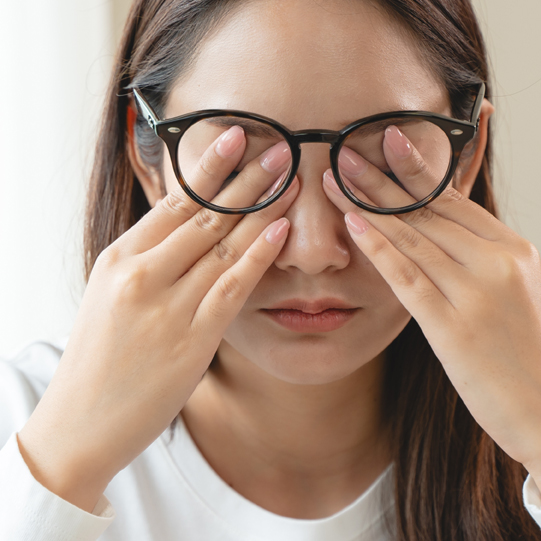At-A-Glance
- Sjögren’s syndrome is an autoimmune disorder that attacks the glands that produce tears and saliva; it may also affect other body parts. Sjögren’s occurs in 1-3% of the population.
- Although dry mouth and dry eyes often occur together, xerostomia (dry mouth) itself causes or worsens acid reflux; that’s because saliva is an important part of the body’s antireflux defense system.
- Medication that causes xerostomia as a side-effect is three times more common than Sjögren’s, and such include antihistamines, antidepressants, diuretics, and opioids.
- Treatments include artificial saliva and tears, as well as good hydration, chewing gum, and avoidance of drinking, smoking, and drying medications.
Join Facebook Live with Dr. Koufman, Noon EDST 1st Wednesday of the Month. If You Miss It Live, See It On YouTube Afterwards.
What Causes Dry Mouth and Dry Eyes?
The most common causes of dry mouth and eyes are (1) medications that dry tears and saliva as a side effect, (2) Sjogren’s syndrome, (3) radiation therapy for head and neck cancer, and (4) chemotherapy.
The most common diagnosis for both dry mouth and dry eyes is Sjögren’s syndrome, an autoimmune disorder that attacks glands that produce tears and saliva. It may also affect other body parts, causing, for example, vaginal dryness and dental disease. Sjögren’s occurs in 1-3% of the population.
Although dry mouth and dry eyes may occur together, the xerostomia (dry mouth) itself causes or worsens acid reflux. This is because saliva is part of the body’s antireflux defense system … after a reflux event occurs … and we all have some after meals … salivary bicarbonate neutralizes any residual acid present in the esophagus; this defense is called Esophageal Acid Clearance.)
Medication that causes xerostomia as a side-effect is three times more common than Sjögren’s syndrome. Such include antihistamines, antidepressants, diuretics, and opioids. This is a side-effect experienced by more than 10% of the population. Look at your meds on-line … do they cause dryness? Try to quit the ones that you don’t need!
Finally, both head and neck irradiation and chemotherapy can permanently destroy glandular tissue. Irradiation, in particular that has the parotid glands in the field of treatment, usually wipes out the salivary glands. For people with those cancer treatments, they should adhere to reasonable lifelong antireflux treatment.
If I Have Dry Eyes and/or Dry Mouth, Should I See a Doctor?
Dry eyes and dry mouth require medical evaluation. There are tests to qualify both tears and salary gland function. And the reason you should see a doctor is because the drying symptoms may be part of systemic disease. Furthermore, there is treatment.
What Is The Treatment For Dry Mouth and Eyes?
Treatments include artificial saliva and tears, as well as maintaining good hydration, chewing gum, sucking on hard candy, and avoidance of drinking, smoking, spicy foods, ordinary mouthwash, and drying medications. You should also limit your caffeine and alcohol.
You can use saliva substitutes available without a prescription. If you’re not sensitive to xylitol, look for products containing it, such as Oasis Moisturizing Mouth Spray; also look for products containing carboxymethylcellulose or hydroxyethyl cellulose, such as the Biotene product line. Walgreens’s Lubricant Eye Drops. All of these are available on-line or over-the-counter at your pharmacy.
Finally, there are prescription medications available from your doctor for both dry mouth and dry eye that may be indicated.
Subscribe to this blog (see below) to stay current; if you would like to schedule a virtual consultation with me, you can Book It Online.









